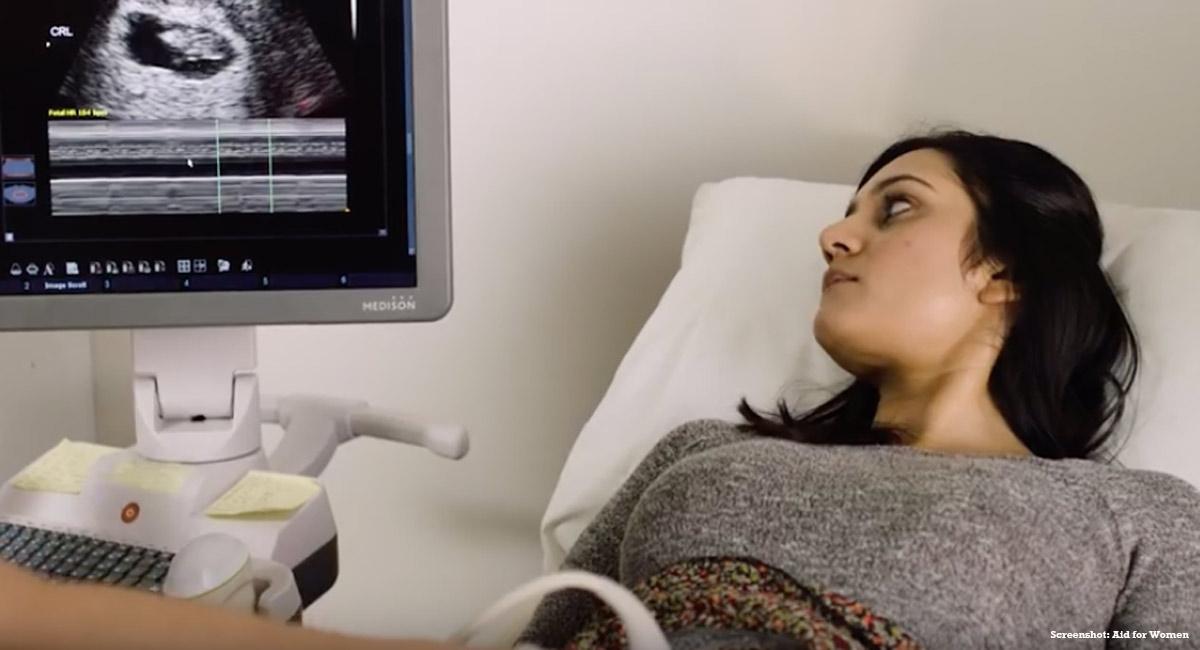An abortion ultrasound bill in Utah has garnered significant media attention after all six female senators, Republicans and Democrats alike, walked off the floor in protest when the bill was being called for a vote.
Republican Senator Deidre Henderson explained why she walked off the floor, despite allegedly opposing abortion. “I am very pro-life, and always vote for pro-life bills,” she told Fox13 News. “But I’m concerned that we are overstepping with government mandates of medically unnecessary procedures.”
Senate Minority Whip Luz Escamilla said, “I rise in support of something that stops government from intruding on someone’s body.”
Senate sponsor Republican Curt Bramble disagreed with this reasoning, however. “We’re talking about a human being, and having the information relative to that child’s physical being is important as that decision to terminate that child’s life is being made,” he told the Salt Lake Tribune.
But does the bill really mandate “medically unnecessary procedures,” and require “intruding on someone’s body?” Live Action News reviewed the actual text of the bill on March 11, 2020 to shed some light on the truth.
House Bill 364 was introduced by a Republican Senator and Representative, and co-sponsored by six Republican Representatives, including two women. The bill mandates a transabdominal ultrasound before an abortion is performed, and also specifies detailed guidelines for obtaining informed consent. The original version of the bill required transvaginal ultrasounds, which are more invasive than transabdominal ultrasounds.
READ: Abortion worker horrified after witnessing late-term abortion on ultrasound
The bill’s language “requires a medical professional to do the following before a pregnant woman may give informed consent to an abortion: display live fetal images of the unborn child; describe the fetal images, make audible the fetal heartbeat, if possible; and provide written confirmation to the pregnant woman stating that the medical professional complied with the requirements.” The bill also specifies that “a pregnant woman may choose not to view the fetal images and not to listen to the fetal heartbeat.”
The guidelines for informed consent require that the abortionists shares certain specific information with the woman seeking an abortion. This information is to include “the nature of the proposed abortion procedure, specifically how the procedure [] will affect the fetus, the risks and alternatives to the abortion procedure or treatment, the options and consequences of aborting a medication-induced abortion (if relevant), the probable gestational age and a description of the development of the unborn child at the time the abortion would be performed, the medical risks associated with carrying her child to term,” as well as support resources if genetic testing or other prenatal diagnostics suggest that the child has Down Syndrome.
If passed, House Bill 364 would require significantly more comprehensive information to be provided to women seeking abortions than is currently the case in Utah. Still, this is appropriate, given that a successful abortion involves the death of a human being. Despite this, Democratic Senator Kathleen Riebe compared an abortion to having a vasectomy in the Salt Lake Tribune, saying that in either case “this is a personal choice each person comes to on their own.”
Unlike abortion, a vasectomy does not end the life of an existing human being.
Notably, the bill does does not require that all the conditions for informed consent be fulfilled if the child was conceived through rape or incest, if the mother’s life is considered to be in danger, or if the mother is 14 years old or younger. Presumably, these exceptions are meant to be compassionate towards the mother. Still, the exceptions seem to suggest that only some women deserve to be told the full truth about their preborn children.
In order to become law, the amended bill must go back to the state House of Representatives for a vote.
“Like” Live Action News on Facebook for more pro-life news and commentary!







